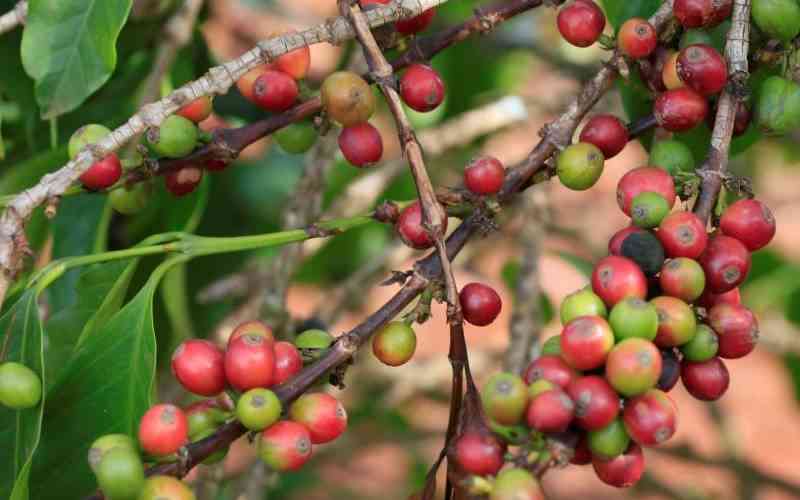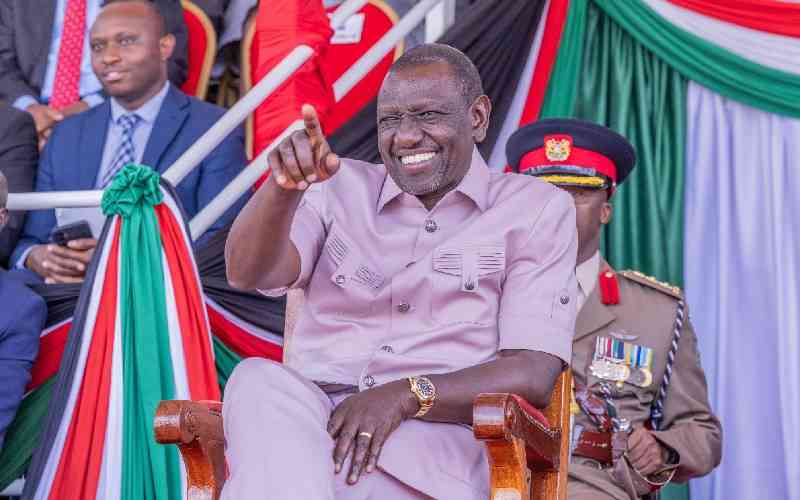
The discussions on coffee reforms are ongoing, and so far so good.
The reforms have seen some players miss the licences they have been getting automatically. The reforms aim to have the farmer play his/her role in the coffee value chain and earn his/her justified margin.
Coffee is mainly sold through the Nairobi Coffee Exchange. In 2004 and 2005, farmers complained that coffee marketing agents and buyers were colluding to make coffee prices at the auction were not too high thus disadvantageous to the farmer.
This scenario gave birth to the coffee direct sales, popularly known as the second window.
This aims at bypassing the coffee auction. In this second window, the farmer engages a buyer located outside Kenya and agrees on how to supply a given type of coffee at an agreed price.
This has seen farmers gain as several middlemen are done away with. For example, a coffee marketing agent who earns $40 per tonne of clean coffee is eliminated and all these dollars go to the pocket of the small holder farmer.
Other middlemen competing to earn from the farmer are the coffee auctioneer, the warehouseman to name a few.
There are many other ways of increasing the farmers' income like diversification to other non-coffee related businesses.
A case in Kirinyaga County where a coffee cooperative engages in petroleum and real estate business, which cautions the farmer when the coffee prices are not favourable.
Some cooperatives have also integrated vertically where they set up their own coffee mills thus avoiding the milling and handling charges by the commercial coffee millers.
Other winning strategies include certification and targeting non-traditional coffee markets that also include the domestic market which Kenya has not utilised much.
Kenya is a poor consumer of its own coffee at 0.036kgs per capita compared to Finland 12.57kgs, Uganda 1.44kgs and Ethiopia 2.6kgs.
The surest way of increasing coffee earnings is by increasing productivity. This can be measured through the production per tree or per acre.
A farmer who has 100 coffee trees that produce a kilo per tree and is paid Sh50 per kilo earns a total Sh5,000 from his coffee.
Stay informed. Subscribe to our newsletter
If the same farmer improves his agronomic practices making his tree to yield an average 20 kilos her earnings would increase to Sh100,000.
Studies have shown that the productivity of coffee can improve earnings up to 17 times. When coffee production is high the quality is also high which makes the farmer earn more. Any strategy or practice that aims to increase production works to improve quality.
As we work to eliminate the coffee cartels, let us remember that the greatest coffee cartel is the low productivity of our farms. A farmer whose coffee tree produces less than 5 kilos will always complain that the coffee business does not make sense. He will always complain that the price is low.
He will always talk of coffee cartels. But the fact is that he is the one producing at a level that doesn't make any economic sense. Increasing the production is no magic.
It requires the farmer to have the right variety of coffee for his altitude, make the necessary soil amendments in terms of acidity/alkalinity and nutrition and carry out proper canopy management.
Where rainfall is inadequate the farmer should consider doing irrigation either drip or aerial.
The current productivity of 475 kilos per hectare is too low to motivate the farmer engage in coffee production. It is even lower than what we used to produce in 1963 when we were doing 970 kilos per hectare.
Dr Maina works at Murang'a County Coffee Directorate
 The Standard Group Plc is a
multi-media organization with investments in media platforms spanning newspaper
print operations, television, radio broadcasting, digital and online services. The
Standard Group is recognized as a leading multi-media house in Kenya with a key
influence in matters of national and international interest.
The Standard Group Plc is a
multi-media organization with investments in media platforms spanning newspaper
print operations, television, radio broadcasting, digital and online services. The
Standard Group is recognized as a leading multi-media house in Kenya with a key
influence in matters of national and international interest.
 The Standard Group Plc is a
multi-media organization with investments in media platforms spanning newspaper
print operations, television, radio broadcasting, digital and online services. The
Standard Group is recognized as a leading multi-media house in Kenya with a key
influence in matters of national and international interest.
The Standard Group Plc is a
multi-media organization with investments in media platforms spanning newspaper
print operations, television, radio broadcasting, digital and online services. The
Standard Group is recognized as a leading multi-media house in Kenya with a key
influence in matters of national and international interest.





